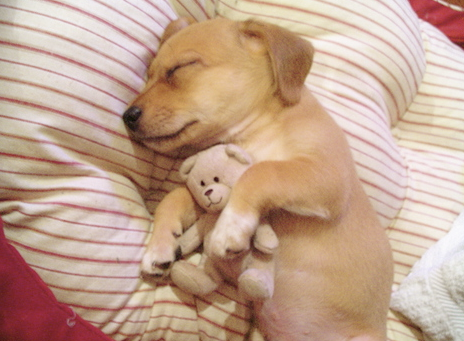Sleep only 4 hours each night? Then you’re a short sleeper.
This week the high profile Kerry Kennedy sleeping pill trial got underway. It may mark a precedent for sentencing someone for accidentally taking a sleeping pill and operating a vehicle. Are we shaming the sleepless? Shaming the reckless and famous? You decide. We examined a trend called Short Sleepers. This is a REAL condition, not someone who is taking power naps or “semi-functioning” on short sleep. No one is taking George Costanza naps under their desks mid-day. These people function better than people who get 8 hours of sleep, on only 4 hours of sleep. That is ALL the rest they need.
For most of us, setting the clock forward in the spring is a sad occasion, a sign that we’re losing an hour of sleep. But for some genetically blessed people, a loss of one hour of sleep is not a problem. In fact, sleeping fewer than the recommended seven or eight hours is the norm. They naturally feel refreshed and ready to go at 4 a.m.
READ MORE: Why Shellfish is Unhealthy
These “short sleepers” have a mutation on a gene known as hDEC2, that regulates their sleep-wake cycle. This mutation allows them to function on less sleep, researchers say. There have been purported short sleepers such as former British Prime Minister Margaret Thatcher, actor James Franco and domestic personality Martha Stewart. Whether they’ve been able to stave off sleep through genetics or willpower is unknown.
Certainly, a natural short sleeper has competitive advantages, but most people probably don’t have the genetic mutation, said Ying-Hui Fu, professor of neurology at University of California San Francisco.
“It’s hard to tell how frequent this mutation is,” she said. Her lab has only found 20-30 people with the genetic mutation that researchers believe contribute to the ability to sleep less. Many with this mutation hold down two jobs, have successful careers and enjoy diverse interests. “Everyday, they have two to three more hours to do things,” Fu said. “They’re very active.”
Problems arise when your body needs seven or eight hours, but you force yourself to function on less, sleep experts say. Many people boast about their lack of sleep, like a badge of honor of being superhuman. Most likely, that sleep deprivation can make you less than super. “You’re tired, walking around tired,” said Dr. David Volpi, a founding doctor of Manhattan Snoring and Sleep Center. “Your performance is poor, cognition is decreased and attention is decreased.”
Sleep deprivation can cause increased driver’s fatigue, drowsiness and poor hand-eye coordination. In the long run, people who sleep less than six hours have been found to have greater risks of mortality, obesity, heart attacks and stroke. Most of us need about seven to eight hours of sleep, and some people need as much as 10.
Fu thinks people who aren’t natural short sleepers “use artificial things to sleep less.” “Long term, it’s more likely to cause health problems such as cardiovascular risks and cancer,” she said. It’s unclear whether natural short sleepers risk health problems associated with sleep deprivation.
READ MORE: Surprising Allergies
In a 2009 and 2013 study published in Science Magazine, Fu and her colleagues from University of California San Francisco identified a mother and her adult daughter who regularly slept an average of 6.25 hours. Their blood tests showed that they had a particular mutation that affects their 24-hour cycle. There are probably more undiscovered genetic mutations that facilitate sleep patterns, Fu said.
“They wake up energetic,” she said about the people with such genetic mutations. “Four to six hours, that’s their optimum sleep.”
Most people think they are short sleepers, or can power through the fatigue or just power nap. But, there is a rare breed that actually function better, than anyone who slept like a bear the night before. Are you jealous of their X-Men like super genetic mutation? Or do you cherish your hibernation sleeps and lingering in bed? Early to bed and early rise, do you function better? Or are you’re a night crawler that is most productive, when the “paid celebrity programming” pops on the television?










Very interesting post! I’m definitely a night owl and find myself to be most productive once the sun goes down. Too bad I missed out on the hDEC2 gene; seems like being a “short sleeper” would suit my lifestyle! Haha.